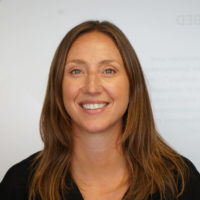Researching what works for children’s social care means we are often looking at sensitive issues, and some of these issues can be particularly upsetting. However, it’s vital that we look at even the darkest areas and challenges to make sure we are doing all we can to protect children and support families.
I want to talk about a new project we’re working on that focuses on physical harm to very young children. It’s a difficult subject to write about but we know that social workers are dealing with this emotive subject everyday, and sadly some children remain at risk. So however upsetting we find it, it’s imperative that we work on and talk about how to safeguard babies from non-accidental injury. The National Child Safeguarding Practice Review Panel was established in 2018 to commission reviews into the most serious cases of harm and how safeguarding partners work together in response. The panel reviews serious cases of harm and other evidence to make sure that changes are made to practice where needed, and that through shared learning, repeats of harmful incidents can be avoided. In 2021, the panel undertook a detailed piece of work looking at instances of death and serious injury to babies that were caused by men. This is because physical abuse to babies is the largest category of incidents referred to the panel and in the vast majority of cases the injuries were caused by men. The Myth of Invisible Men report sought to better understand the factors that lead to men physically harming babies and how effectively services currently safeguard babies in these circumstances.
The panel gathered insight through field work – including interviews with male perpetrators and deep-dives into cases – and The Fatherhood Institute conducted a comprehensive literature review. The panel found that the existence, and co-existence, of contextual factors such as substance misuse, co-existence of domestic abuse, and poverty increased the likelihood of babies suffering serious physical injuries or death. These factors are all too familiar and their prevalence presents a significant challenge for practitioners. How can social workers identify the children most at risk when nearly all children who need support from children’s social care experience one or more of these factors?
The Department for Education has asked us to do some more work in the area to build on the National Panel’s review. We want to build on the literature review and summarise further existing evidence to understand more about the role of men in non-accidental injury. Our aim is to examine whether risk factors present differently for men and for babies, in comparison to the rest of the population. But we recognise that this research alone won’t help practitioners to keep babies safe so we are also looking at studies that can tell us more about interventions that target men, babies or the known risk factors.
That’s why we are calling for colleagues in the sector to work with us through our Practice in Need of Evidence programme to start evaluating practice that is already happening around the country. Through this programme we hope to identify practice that can be tested on a large scale to establish whether it has an impact on children’s safety. We want to hear about any practice that focuses on non-accidental injury, specific interventions with infants or any interventions or approaches that seek to better engage with men.
As with all our work, we will publish everything we find and we will keep the dialogue going with the National Panel. It’s important that the learning from this work is fed back into the wider response to the Independent Review of Children’s Social Care and National Panel’s more recent review of the deaths of Arthur Labinjo-Hughes and Star Hobson. In leading this work, I’m carrying with me the families I worked with when I was in practice. It motivates me to keep pushing for more research and better evidence to help practitioners make difficult decisions about the most vulnerable children. If you would like to be involved in this work or you can share practice that’s happening in your area please get in touch. anna.bacchoo@whatworks-csc.org.uk


